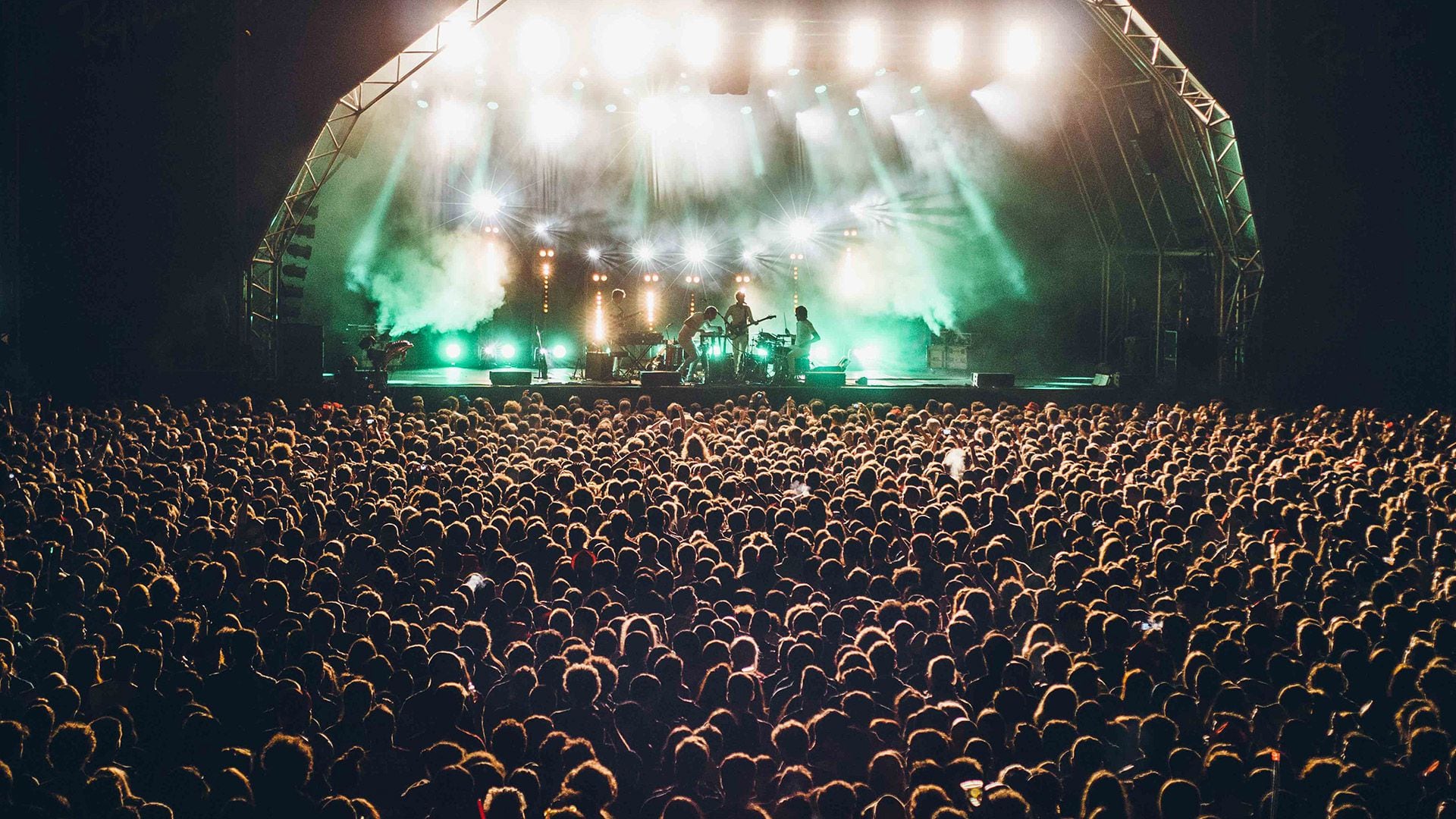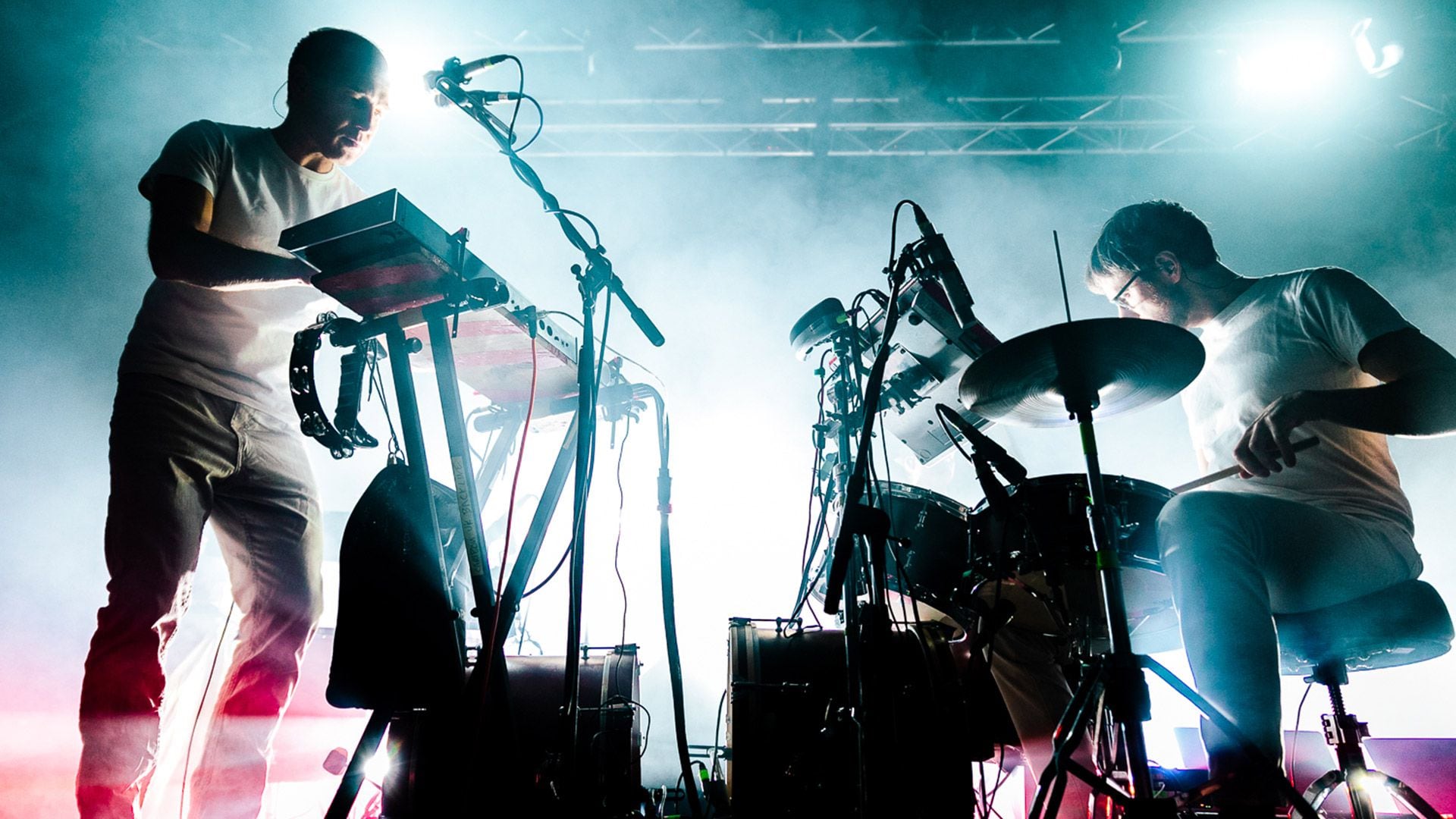
“I always felt like an outsider, I don't quite fit in the world of electronic music or even in the field of songs,” Canadian musician Dan Snaith tells Infobae Cultura, days before traveling to Buenos Aires, where he will perform for the first time with his best known facet, Caribou, this Thursday at the Center Cultural Konex. Currently on tour to present his latest album, Suddenly (2020), the most eclectic and personal of his career, Snaith is one of the most experienced artists in the crossroads between dance and pop culture. His music never stays in one place, crossing different genres in a wide passage between the dance floors and the intimacy of the home, where euphoria and reflection mix.
At the beginning of the new millennium, this native of a rural Ontario town now residing in London caught the attention of the trade press with his debut album under the name of Manitoba, Start Breaking My Heart, in which he explored the endless musical possibilities of sampling through the disruptive lessons of DJ Shadow and Aphex Twin. His search became even more interesting with his second album, Up in Flames, an immersion in the reverberating sounds of psychedelia and the most experimental jazz—the origins of electronic music—transfered by intense percussion rhythms. His review of genres and styles is always present in his music, but from 2010 he began to assert himself in the sounds of his time with the release of Swim and reinvented himself as an artist capable of igniting a party, especially with his side project, Daphni.
Caribou's vast horizon can be traced in a mixtape of almost a thousand songs available on Spotify and Youtube that Snaith himself shared a few years ago. The long list, with a lot of hip-hop, includes some oddities of Brazilian music and psychedelic folk from the Chilean Congregación. In the interview with Infobae Cultura, the musician acknowledges that he barely listened to Argentine music, although he thinks he recently sampled a national rock song. Snaith's curiosity and delicacy are transmitted during the talk. He apologizes for his schedule when he is mentioned that his show coincides with the national holiday of March 24 and asks for more details on the facts. “I hope I don't disrespect and that we can have a good time despite everything,” he says before finishing.

—After two years of pandemic, you were finally able to go on tour. How do you live the experience in the current context and how do the audience receive these songs?
“It makes us happy to be able to play again, the people who come to see us already know the new songs very well and for us it is the opportunity to reconnect with that material. Once I record an album, I never listen to it again, so familiarity with the songs is established live, seeing how to adapt them and how they change.
We are now in Germany, which obviously connects closely with the war crisis because many refugees are arriving. And a few days ago we played in the Czech Republic, Slovenia and Croatia, which, although they do not border Ukraine, are part of Eastern Europe. The truth is it is difficult to know how to respond from the stage to this situation or to all the anxiety and complicated moments that many people have experienced because of covid in recent times. What we notice is that there are so many repressed emotions in the public that they seek to be able to release them collectively. The desire to be with others in order to feel good at least for a while is evident. Of course we all have responsibilities, but that doesn't mean we can't get together and enjoy music. I think it is very important that this can happen.
“You always had one foot in the history of popular music and another in the most current music, but in the last decade it seems as if you have found the balance between the two and that allows your music to reach a wider audience. Do you feel that there was a change?
“It seems to me that what also changed was the musical climate. In the early 2000s, the type of artists with whom I felt something in common were bands such as Animal Collective or Black Dice, which were part of a then very lively experimental music scene, or also with others that resumed psychedelic rock in some way. It was interesting to release an album like Andorra, which is probably the one with the most references to a specific time in the past like the 1960s, and it was a bit weird too, because I put it together with very small samples in a room instead of recording it in a luxury studio with orchestra in the manner of The Zombies, The Byrds or The Beatles. But starting with Swim (2010), which is heavily influenced by everything that happened in some London clubs at that time, I began to wonder if my music shouldn't reflect, in addition to my own way of life, a type of contemporary music culture. And that's especially easy to do when you feel that new things are happening. I think that's where I can contribute something, although I always felt like an outsider, I don't quite fit into the world of electronic music or even in the field of songs.
“You always wrote at home. Have you ever considered recording with the rest of the band in a studio?
“I prefer to work alone. I am so used to composing in my home studio that the idea of going into recording with other musicians without being sure what to do seems terrible to me. I have that sociable side that I enjoy playing in front of the audience or collaborating with other people and figuring out how to work with each one of them, but then there is that side of my personality that wants to be in charge of everything and have the time it takes to delve into the smallest details. What I would like is to have a record of our shows and release it as an album, because the live songs are very different. They become long improvisations or we reinterpret them in different ways. I think I'm pretty lucky to be able to do both.

— Suddenly has a sound that abbreviates in hip-hop of the 90s. Were there any significant changes in the way we sample, from the very beginning when electronics became a global phenomenon to these times when anyone can record an album?
“At a certain point it is striking how similar it continues to be. My way of making music always had to do with samples that I found on albums from other times, combined with the melodies and rhythm sequences that I build. And that I think has to do with my experience of listening to artists like Aphex Twin or Wu-Tang Clan for the first time. Their records seemed to be made in an accessible way to me, they probably didn't need a lot of expensive equipment to compose them. Back then you needed a sampler, connect everything through a midi, and so on. Although over the years it became better and easier with Ableton or similar, the process is fundamentally the same: to be able to mix audio from any source, whether it's the sample from a previous recording, an instrument you have, some voice, etc., and stretch their time or change their pitch.
What changed is that now I have more time to reflect on what I do. I'm always wondering if the new material integrates with the music I made earlier or if it adds something different to it. Otherwise, I don't see the point in recording a song that is the same as the previous ones.
— What is usually your starting point when it comes to composing and how do you end up fitting the different pieces together?
“I usually start by programming some drums and then I look for a sequence of chords or something harmonic, then a melody and at the end of it all I start thinking about the lyrics. Of course, in the middle I am adding different types of textures, ideas and countermelodies. But it's really something that varies a lot, luckily. Some of Suddenly's songs, such as “Home”, wouldn't have existed if it weren't for the Gloria Barnes sample that I found and looped, making a very basic change to the original song. Sometimes I start on that side or with a melody. The good thing about having the studio at home is that I can come down to record anytime I get an idea.
—In several interviews you emphasize the importance of making mistakes or making mistakes, as it renews your gaze on the creative process. Could you explain this idea a little more?
“I think it's worth highlighting that aspect because it's what I feel most when it comes to making music. After 20 years, I still don't really know what I'm doing. Only through an endless process of experimentation and playing with things, trying with hundreds of different ideas, do I find what can put them together in a song that I like. It seems a little strange that this is the way after so long, but it is so. Sometimes a misplaced note or some other mistake allows me to discover that time or harmonies were not as I thought, and another perspective opens up for that piece. I don't have a clear intention when I go into composing, I just let things happen.
KEEP READING:
Últimas Noticias
Debanhi Escobar: they secured the motel where she was found lifeless in a cistern

The oldest person in the world died at the age of 119

Macabre find in CDMX: they left a body bagged and tied in a taxi
The eagles of America will face Manchester City in a duel of legends. Here are the details

Why is it good to bring dogs out to know the world when they are puppies




